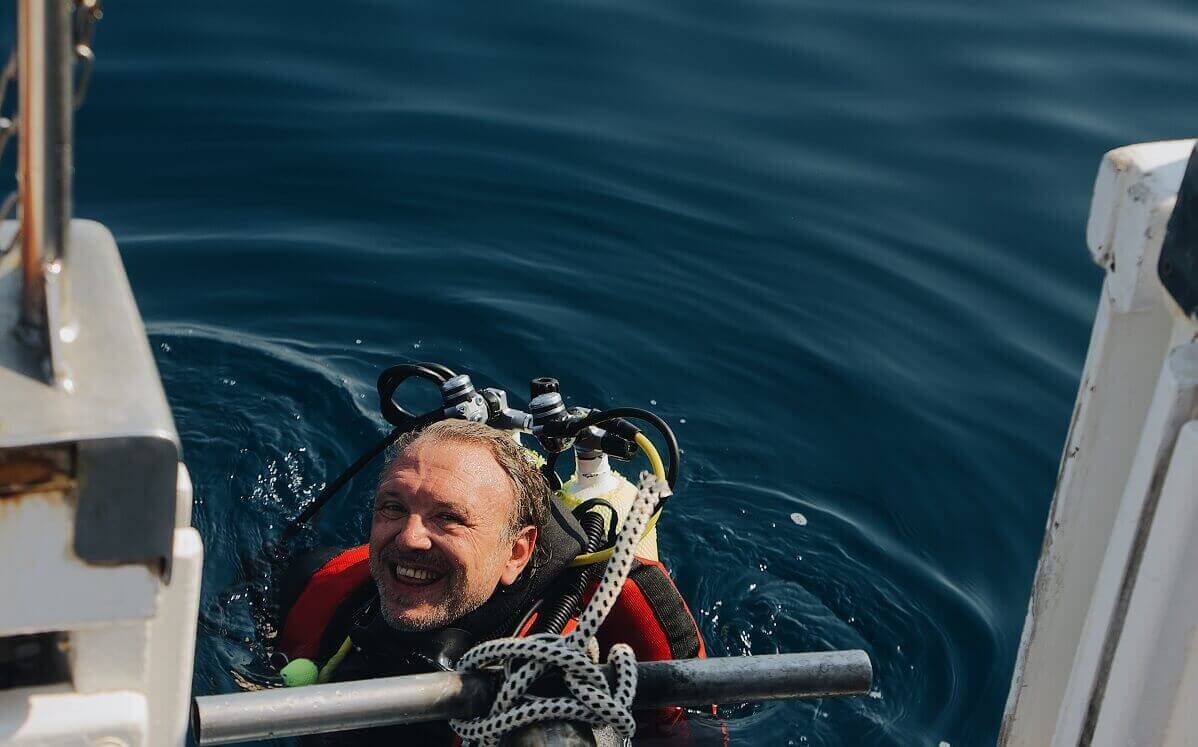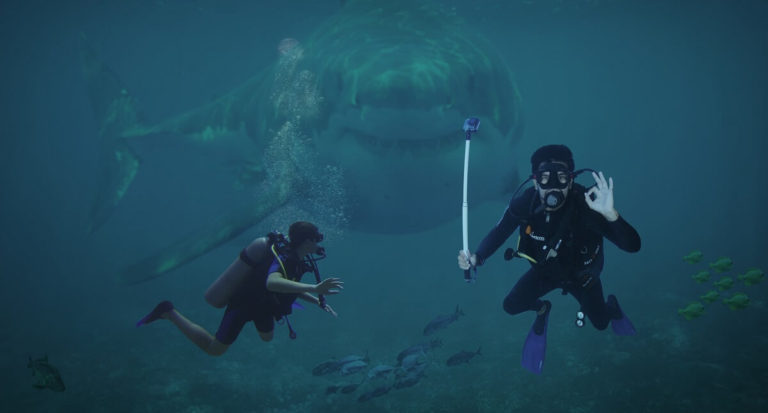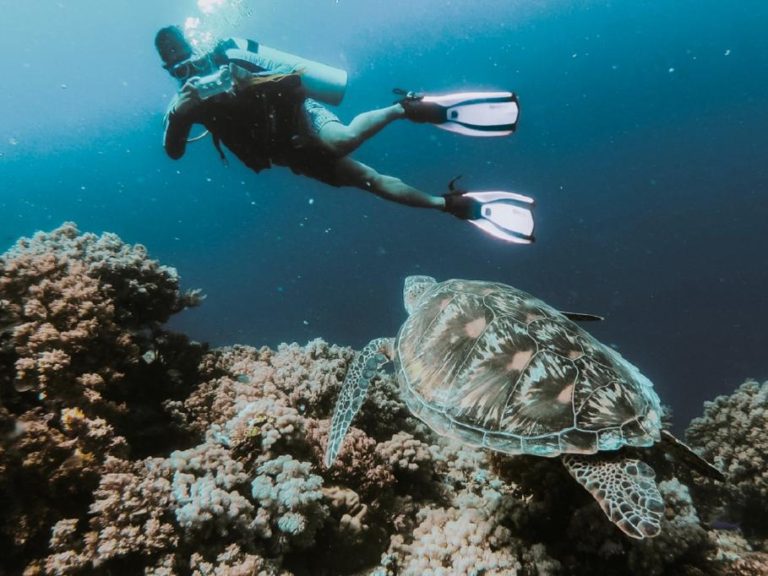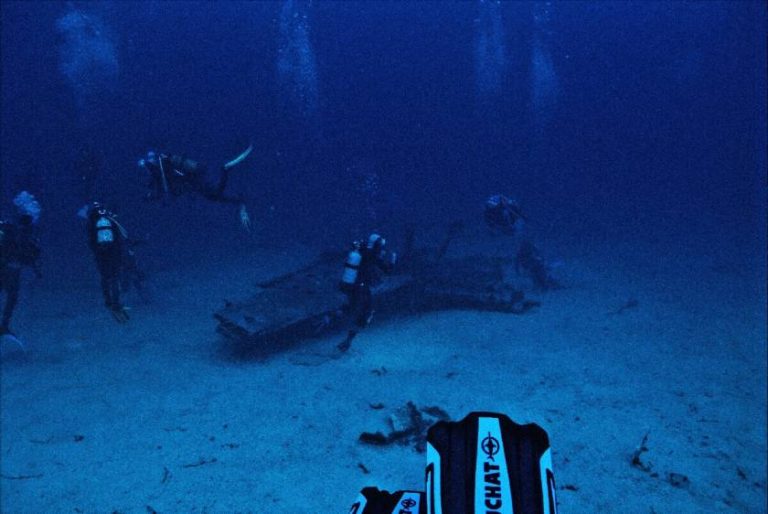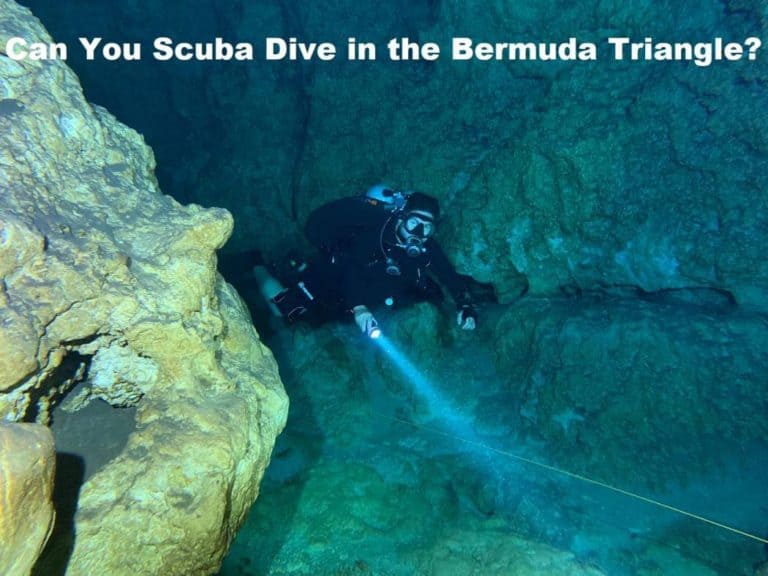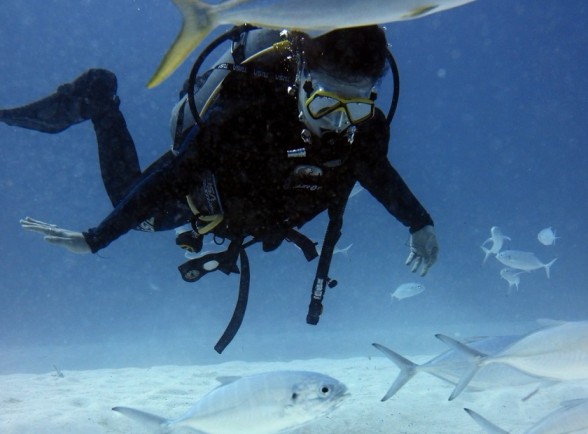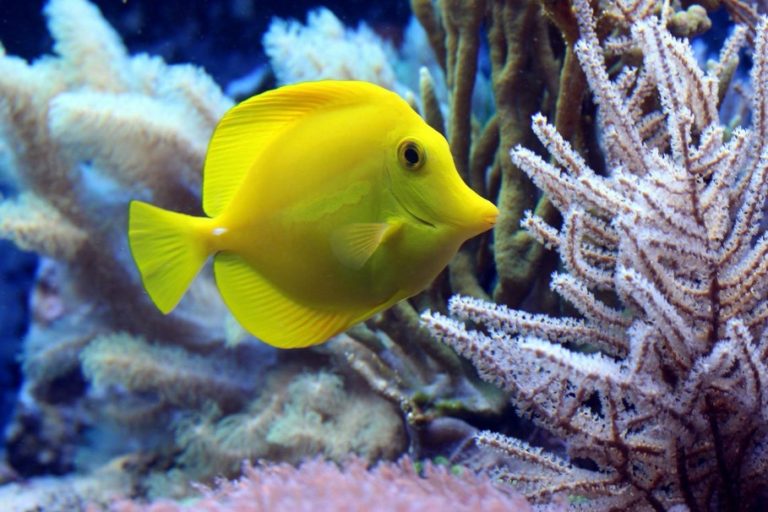What Is The Age Limit For Scuba Diving
Scuba diving has gained popularity among all ages from the young to the old. As a parent or an older sibling, you may have little brothers, sisters, and cousins asking to join you on your next scuba diving trip and you may have wondered what is the age limit for scuba diving.
There is no age limit for scuba diving. You can be over 70 years and still scuba dive, provided you are physically fit and in good health to do so. However, younger divers, have to be at least 8 years old to start a diving class with one of the certifying agencies such as PADI.
Some diving parents start home training their kids sooner in a controlled environment such as the swimming pool. However, this isn’t always recommended and if done should be under high levels of supervision.
In this article, we’ll dive deeper into various aspects of scuba diving relating to various age groups and also address the issue of when to stop scuba diving and so much more.
Let’s dive into it!
Bubblemaker diving contributes to a healthy and active lifestyle. Physical activity enhances heathy growth. It adds to collecting and encourging social skills in small groups. It can even help children to overcome their insecurity#underwaterworld #kids #bubblemaker #scuba pic.twitter.com/acdWBPN1I5
— Egypt Divers (@Egypt_Divers) March 26, 2019
At what age can you start scuba diving?
Diving agencies such as PADI (Professional Association of Diving Instructors) and SSI (Scuba Schools International) have a minimum age limit of 8 years old to start a scuba diving class.
These are the top two diver certifying agencies with many qualified instructors. The age limit may vary in other agencies. For instance, some require that the child is at least 10 years old to start the classes depending on their training capacity.
In these beginner classes, the kids are only taught in controlled waters. Here they get introduced to basic water skills, learn how to stay comfortable underwater, and also help build their confidence.
The dive limits are also kept at a minimum depth.
PADI offers two introductory diving classes for the kids as they start training. These are the;
- Bubblemaker course
- Seal Team course
The Bubblemaker course trains up to a maximum of 2 meters in depth while the Seal Team course trains up to a maximum of 4 meters.
These conditions are controlled and safe for the kids as they train with their instructors.
To ensure the kids remain calm, the water is calm with no waves at all and the water is crystal clear for visibility.
These introductory classes do not earn the kids any diving certifications. These are only designed to introduce the kids into the scuba diving world, help them feel comfortable underwater, and help build their water skills.
During this training, the kids also get introduced to the basic diving gear and start learning how to use them.
If you have a child at least 8 years old and they’ve always wanted to scuba dive this is the best and safest way to introduce them to the sport. Kids get to interact with other like-mind kids making the learning process fun for them.
99-year-old WW2 vet Bill Lambert attempted to break the world record as the oldest scuba diver ever Thursday (his birthday) at Pearl Lake in South Beloit. See more in tomorrow’s edition. pic.twitter.com/M8zB5sL6iG
— Beloit Daily News (@BDNConnection) September 5, 2019
At what age should you stop diving?
While there is a minimum age limit to start scuba diving lessons, there is no maximum age limit.
Did you know that the oldest scuba diver and world record holder of the oldest person to scuba dive (Bill Lambert) started scuba diving at 98 years old back in 2018?
Yes, that’s true.
This proves that you can scuba dive for as long as you are physically fit and healthy. Most people over the age of 50 are considered “old” to go scuba diving but this shouldn’t be an issue.
When I was training we had an instructor who was 65 and was very fit. It’s also very easy to find seniors in a scuba diving class either, as students or as instructors.
The only factors to consider as scuba diving limitations should be physical, psychological, or emotional wellness.
For instance, you could be at the prime of your life say 25 -30 but suddenly develop an illness that makes it impossible for you to go scuba diving. Just because you are in your prime years doesn’t mean you should strain yourself when your body isn’t able to withstand the pressure.
Provided you are in good health, physically and mentally fit you can go scuba diving.
The best way to spend time with your family is learning to dive together👨👦👦❤#dive #diving #scubadive #scuba #bubblemaker pic.twitter.com/psRmfzRIf5
— DRESSELDIVERS (@DRESSELDIVERS) February 9, 2018
Body Changes as we age
Divers over the age of 50 should however make a point of seeing their doctors at least once a year to ascertain they are in good shape.
As we grow older our bodies change lowering the amount of stress the body can take. In addition, we tend to become more prone to certain conditions such as respiratory infections.
I know many physically active people aged over 50 and are in better shape than many young people. This is only a cautionary step and shouldn’t be taken as an offense to anyone.
Depending on the diving site and depth, you may require a full medical examination from your doctor. Diving in caves and at very deep levels poses different risks and challenges for all age groups even for experienced divers.
Ray Woolley broke his own world record as the oldest qualified male scuba diver at 95. This was only one year after achieving this title. He did it again a year later breaking his own record for the third time.
The British World War II veteran has been scuba diving for over 65 years and continues to inspire many divers all over the world.
This goes to show that you are never too old to start scuba diving or start a world record.
Ray Woolley, on his 94th birthday, broke the Guinness World Record for the world’s oldest active scuba diver, going to a depth of 38.1 meters for 41 minutes. #MeetTheAmazings pic.twitter.com/goUMPSDLK2
— Dr. Noelle Nelson (@DrNoelleNelson) October 29, 2018
Read more: IS SCUBA DIVING SAFE FOR SENIORS?
How old do you have to be to scuba dive alone?
You have to be at least 21 years old and have proof of experience as a diver in open waters.
There are many more requirements to become a certified solo diver including medical reports and other diving certifications.
Solo diving isn’t always encouraged especially for beginners and when diving in foreign waters. In foreign waters, you can easily get lost since you are not familiar with the environment and you also lack knowledge of the dangers surrounding you.
Buddy and team diving are always encouraged because you’ll have someone watching your back at all times. In case you are exhausted while underwater you have someone to carry you back to the shore. There are many advantages to team or buddy diving.
Solo diving also has its share of advantages but should only be done by certified solo divers.

How old do you have to be to get a scuba diving certification?
You have to be at least 10 years old to earn a Junior Open Water Diver certification.
As the child grows up, they can enroll and train for an advanced certification Open Water Diver certification usually awarded to children aged 15 and above.
More diving certifications can be earned as you train more for different environments.
READ MORE: Can You Learn Scuba Diving At Home?
FAQs
Can an 8-year-old scuba dive?
Yes, an 8-year-old can scuba dive under the instruction and supervision of a certified diving instructor or diving parent.
An 8-year-old should only scuba dive in controlled waters under supervision and guidance.
Can a 10-year-old scuba dive?
Yes, a 10-year-old can scuba dive in both controlled and open water under the diving instructor’s supervision.
At 10 years, a kid can earn their first Junior open water diver certification
Can a 12-year-old scuba dive?
Yes. May diver certifying agencies start training kids at 10 years. A 12-year-old can begin scuba diving lessons or go open water diving under supervision.
Is 55 too old to scuba dive?
No, you can scuba dive as a 55-year-old. Just remember to first get a medical report from your doctor certifying you are in good shape to dive.
How old do you have to be to scuba dive alone?
You have to be at least 21 years old, have diving experience and maturity, and have fulfilled all the preceding diving certifications
How old do you have to be to go scuba diving in Florida
The minimum age requirement to go scuba diving in Florida is 15. Kids aged 10 -14 can however take diving lessons under the supervision of their instructors.
How old do you have to be to go scuba diving in Hawaii
At age 15, kids can participate in open water diving with no supervision.
How old do you have to be to go scuba diving in California
Kids aged 15 and above can go open water diving with their families. However, kids aged 10 – 14 can only dive in open waters under the supervision of a certified instructor or diver parent.
How old do you have to be to go scuba diving in Goa
10-year-old kids can go scuba diving in Goa
How old do you have to be to go scuba diving in the UK
The minimum age to go scuba diving in the UK is 12 years old.
Kids under the age of 12 can still go for scuba training in controlled waters. At 14 years old, the kids can participate in open water diving.
On August 28th 2019 the world’s oldest scuba diver Ray Woolley who is WWII vet and a great grandfather celebrated his 96th birthday by exploring a shipwreck site for 48 minutes at a depth of 42.4m. pic.twitter.com/gLERbnCNbJ
— Cmonionline (@cmonionline) December 1, 2019
Final Thoughts
In most diving sites the minimum age limit to go open water diving is 15. However, kids aged between 11-14 years who are already taking diving lessons can scuba dive in open waters under the close supervision of their certified parents or instructors.
There are however no maximum age limits for scuba diving. The only restriction should be related to your health. If you have any health problems regardless of your age you should never go scuba diving.
Remember to always take caution and assess the risks in any environment before diving.
While traveling always dive with a local, they have better knowledge of the water and environment than you will ever do. Always take caution and enjoy your dive.

